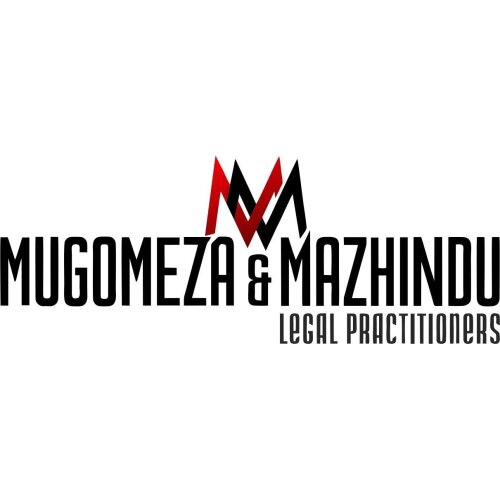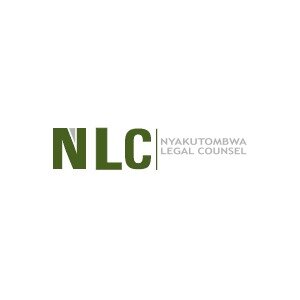Best Climate Change Law Lawyers in Harare
Share your needs with us, get contacted by law firms.
Free. Takes 2 min.
List of the best lawyers in Harare, Zimbabwe
About Climate Change Law in Harare, Zimbabwe
Climate Change Law in Harare, Zimbabwe, refers to the body of legal principles, statutes, and regulations geared toward mitigating and adapting to the effects of climate change. This area of law influences how individuals, businesses, and government agencies manage their environmental responsibilities and carbon emissions. As the capital city, Harare plays a leading role in implementing national climate policies and addressing unique urban challenges such as pollution, waste management, and green urban planning. Climate Change Law intersects with many sectors, including agriculture, energy, water resources, transportation, and land use.
Why You May Need a Lawyer
Engaging a lawyer with experience in Climate Change Law can be essential in several situations. Businesses may require legal assistance to ensure compliance with environmental regulations governing emissions, waste disposal, or resource use. Individuals or community groups could seek legal advice when challenging activities that harm the environment, such as illegal dumping or deforestation. Lawyers are also valuable when navigating complex approval processes for green energy projects, disputing land use decisions, or responding to government enforcement actions. Additionally, staying ahead of regulatory changes and understanding your rights and obligations under evolving climate policies can be challenging without legal expertise.
Local Laws Overview
Zimbabwe has ratified major international climate agreements, including the Paris Agreement, and its commitment is reflected in national laws and local policies. Key regulatory frameworks affecting Climate Change Law in Harare include the Environmental Management Act, which sets standards for natural resource management and pollution prevention. The Harare City Council also has by-laws related to waste, air quality, and building codes to promote sustainable development. The government works with entities such as the Environmental Management Agency, which enforces regulations and oversees environmental impact assessments for projects with potential climate risks. Compliance with zoning laws, natural resource usage permits, and sector-specific guidelines is crucial for any entity operating in Harare.
Frequently Asked Questions
What is Climate Change Law?
Climate Change Law includes the rules and regulations that aim to control greenhouse gas emissions, protect the environment, and support adaptation to climate impacts. This can involve laws at the international, national, and local levels.
Who enforces Climate Change Laws in Harare?
The Environmental Management Agency is the main body responsible for monitoring and enforcing compliance with environmental and climate-related legislation in Zimbabwe, including Harare.
How can businesses comply with climate regulations?
Businesses must ensure their operations do not exceed emissions limits, properly manage waste, adhere to energy efficiency standards, and complete any required environmental impact assessments.
Are there penalties for violating climate-related laws?
Yes. Violations can result in fines, closure of operations, or criminal prosecution, depending on the severity and impact of the offense.
Do I need a license for a renewable energy project?
Yes. Any renewable energy or green infrastructure project generally requires permits and licenses from the relevant authorities, including the Environmental Management Agency and local councils.
Can individuals or groups take legal action against polluters?
Yes. Zimbabwean law provides for citizen and community rights to seek redress or injunctions against those causing environmental harm through pollution or unsustainable practices.
What role do city by-laws play in climate change?
Harare’s by-laws address issues such as waste management, air quality, water use, and construction standards, all of which can have a significant impact on local climate adaptation and mitigation efforts.
How do environmental impact assessments work?
All major development projects with potential environmental impacts must undergo an environmental impact assessment, which is reviewed by the Environmental Management Agency before approval is granted.
What are my obligations if I own property or land in Harare?
Property owners must comply with waste disposal rules, respect land use and zoning laws, avoid illegal deforestation or drainage activities, and may need to contribute to community climate initiatives.
How is climate change integrated into urban planning?
Urban development in Harare is increasingly guided by policies designed to improve resilience to climate risks, reduce emissions through green spaces and sustainable transport, and protect water and energy resources.
Additional Resources
There are several useful resources and agencies for individuals and businesses seeking guidance on Climate Change Law in Harare:
- Environmental Management Agency - The national regulator for environmental issues
- Ministry of Environment, Climate, Tourism and Hospitality Industry - Policymaking and climate strategy
- City of Harare - By-law enforcement and local environmental initiatives
- Zimbabwe Environmental Law Association - Legal advice and advocacy for environmental causes
- Zimbabwe Climate Change Coalition - Supports community awareness and participation
- United Nations Development Programme in Zimbabwe - Technical resources on climate adaptation and mitigation
Next Steps
If you believe you require legal assistance in Climate Change Law in Harare, it is important to act promptly. Gather all relevant documentation about your case or concern, including contracts, permits, communication with authorities, and any evidence of environmental impact. Consider reaching out to a lawyer or a legal aid clinic with experience in environmental and climate matters. You can also seek guidance from local authorities or advocacy groups that specialize in climate change issues. Scheduling a consultation will help clarify your legal position, options for resolution, and steps to ensure compliance or pursue legal action if necessary. Proactive engagement with legal professionals ensures you meet your obligations and helps support Harare’s transition toward a more sustainable future.
Lawzana helps you find the best lawyers and law firms in Harare through a curated and pre-screened list of qualified legal professionals. Our platform offers rankings and detailed profiles of attorneys and law firms, allowing you to compare based on practice areas, including Climate Change Law, experience, and client feedback.
Each profile includes a description of the firm's areas of practice, client reviews, team members and partners, year of establishment, spoken languages, office locations, contact information, social media presence, and any published articles or resources. Most firms on our platform speak English and are experienced in both local and international legal matters.
Get a quote from top-rated law firms in Harare, Zimbabwe — quickly, securely, and without unnecessary hassle.
Disclaimer:
The information provided on this page is for general informational purposes only and does not constitute legal advice. While we strive to ensure the accuracy and relevance of the content, legal information may change over time, and interpretations of the law can vary. You should always consult with a qualified legal professional for advice specific to your situation.
We disclaim all liability for actions taken or not taken based on the content of this page. If you believe any information is incorrect or outdated, please contact us, and we will review and update it where appropriate.
















